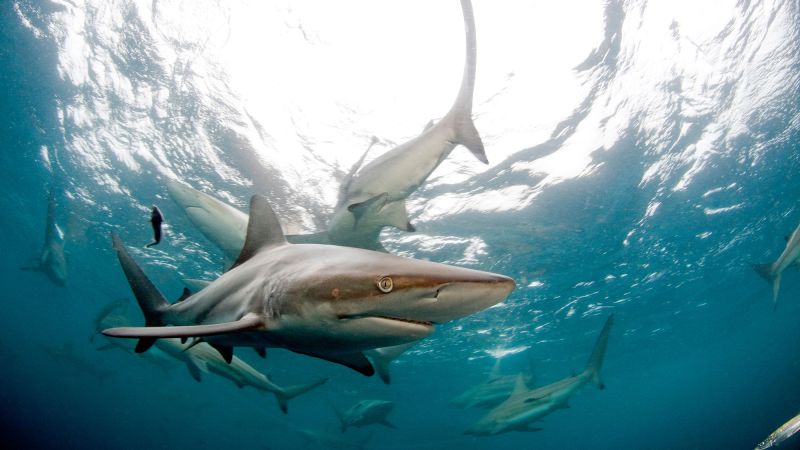In 2024, a remarkable decline in unprovoked shark attacks was recorded, with only 47 incidents reported worldwide. This number represents a notable decrease of 22 from the previous year’s total and falls significantly below the ten-year average of 70. These figures were disclosed in a recent report, providing a comprehensive overview of shark behavior and human interaction in ocean environments, and contributing to ongoing studies about the naturally occurring patterns of shark activity.
The United States emerged as the location with the highest number of reported unprovoked shark attacks, recording 28 incidents. Among these was a tragic case involving a fatal attack attributed to an unidentified shark species that occurred off the northwest coast of Oahu, Hawaii. This number showed a marked reduction, coming in nearly a third lower than the total for 2023. According to the Florida Museum of Natural History, which meticulously compiles the International Shark Attack File, the dataset exclusively focuses on unprovoked attacks, specifically those instances in which a shark does not feel threatened by human activities.
Throughout the year, Florida reported the most incidents within the United States, totaling 14 attacks. Notably, Volusia County, a region renowned for its beaches and proximity to Daytona Beach, accounted for eight of these encounters. Dr. Gavin Naylor, the director of the Florida Program for Shark Research, emphasized the significance of understanding the factors influencing shark behavior to comprehend why occasional bites occur. This quest for knowledge excludes any influences that could alter an animal’s natural instincts.
Species implicated in many of the incidents in Florida were likely juvenile blacktip sharks, common to breeding areas along the northeastern coast. These younger sharks occasionally cannot differentiate between human beings and their standard prey, which may include fish and stingrays. In the state of California, three unprovoked shark attacks occurred; one incident notably involved a punctured surfboard. Surfers constituted approximately one-third of all attacks reported globally, demonstrating the unique risks associated with certain water activities.
The aquatic conditions that occur where surfing is popular often play a significant role in these risks. Dr. Naylor pointed out that in regions with favorable wave conditions, the accompanying turbidity attracts bait fish, which in turn lure sharks. However, this turbidity can compromise visibility, increasing the likelihood of mistaken identity as sharks swim among surfers and other water enthusiasts.
Several factors have been suggested to contribute to the decreased number of shark attacks in 2024. Joe Miguez, the data manager for the International Shark Attack File, mentioned influences such as variations in ocean currents, fluctuations in beach-goers across different regions, and changing trends in popular water activities like snorkeling. A long-term look into the data reveals oscillating patterns—years with spikes in attacks tend to be followed by periods of decline suggesting a cyclical nature rather than a steady increase.
Internationally, Australia followed the United States with the second-highest number of shark attacks, reporting nine incidents while notably avoiding any fatalities. Noteworthy was the first-recorded attack in the Atlantic Ocean region between the Canary Islands and the Western Sahara, which culminated in one of only four global fatalities reported during the year.
In reflecting on human-shark interactions, Neil Hammerschlag, the executive director of the Shark Research Foundation, observed that sharks typically do not target humans. The observed bites often stem from instances of mistaken identity, and, despite an increasing number of people engaging in ocean activities, the overall recording of attacks suggests that humans do not constitute a natural target for sharks.
Greg Skomal, a respected fisheries scientist in Massachusetts, noted that awareness surrounding shark behavior has likely led individuals to modify their swimming habits, particularly in areas such as Cape Cod, which has not reported incidents since 2018. Effective communication of shark risks and advancements in public knowledge concerning water safety practices have played an essential role in this context.
Lastly, the International Shark Attack File emphasizes that the risk of being bitten by a shark is incredibly low. They recommend precautionary measures such as avoiding reflective jewelry, steering clear of fishing areas, swimming with companions, and remaining near the shore. Established in 1958, this influential database has undertaken 6,800 investigations since its inception, underscoring its importance in the assessment and analysis of human-shark interactions throughout history.



